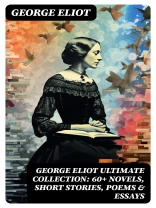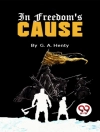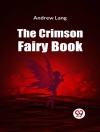The ‘GEORGE ELIOT Ultimate Collection’ compiles over sixty works, showcasing the profound depth and artistry of Eliot’s narrative style, often characterized by her rich psychological insight and moral complexity. This collection not only includes her beloved novels like ‘Middlemarch’ and ‘Silas Marner’ but also features an array of short stories, poems, and essays, encapsulating the intricacies of Victorian society. Eliot’s nuanced prose is interwoven with themes of individuality, social reform, and the quest for meaning in an often tumultuous world, making her a pioneer in modern literature. This anthology serves as both an introduction and a comprehensive exploration of her literary contribution, situating her among the prominent voices of her time. George Eliot, the pen name of Mary Ann Evans, was a trailblazer in the male-dominated literary scene of the 19th century. Her commitment to exploring intricate human emotions and societal issues stemmed from her own experiences, including her unconventional choices in both personal and professional realms. Eliot’s unique background, including her education and engagement in intellectual circles, allowed her to critique and reflect upon the moral landscape of her era, influencing her multifaceted characters and narratives. This collection is an essential read for anyone interested in the evolution of the novel and the intricate interplay of ethics and social dynamics in literature. It is a treasure trove for both scholars and casual readers, inviting them to engage deeply with Eliot’s timeless explorations of human consciousness and society.
A propos de l’auteur
George Eliot, the pen name of Mary Ann Evans (1819–1880), stands as an emblematic figure in the pantheon of Victorian literature. Born in Warwickshire, England, her early education fueled an avid appetite for learning. Eliot, driven by intellectual ambition, proceeded to challenge the societal expectations of women in her era through a prolific literary career. Her opus encompasses’GEORGE ELIOT Ultimate Collection: 60+ Novels, Short Stories, Poems & Essays, ‘ underscoring her versatility and breadth as a writer. Renowned for her penetrating psychological insights and detailed realism, Eliot excelled in novels such as ‘Middlemarch’ and ‘Silas Marner.’ Her narrative technique frequently involved an omniscient point of view, which articulated her characters’ inner lives with nuance and compassion. In addition to her fiction, Eliot’s poetry and essays likewise contributed to the intellectual discourse of the time, engaging with contemporary social issues and philosophical questions. Often focusing on themes of moral ambiguity and the complexities of human relationships, her work pushed against the boundaries of traditional narrative forms and asserted a new level of moral seriousness in the novel as an art form. Her enduring influence is evident not only in the realm of literature but also in the evolving discourse on the roles and recognition of women writers.












